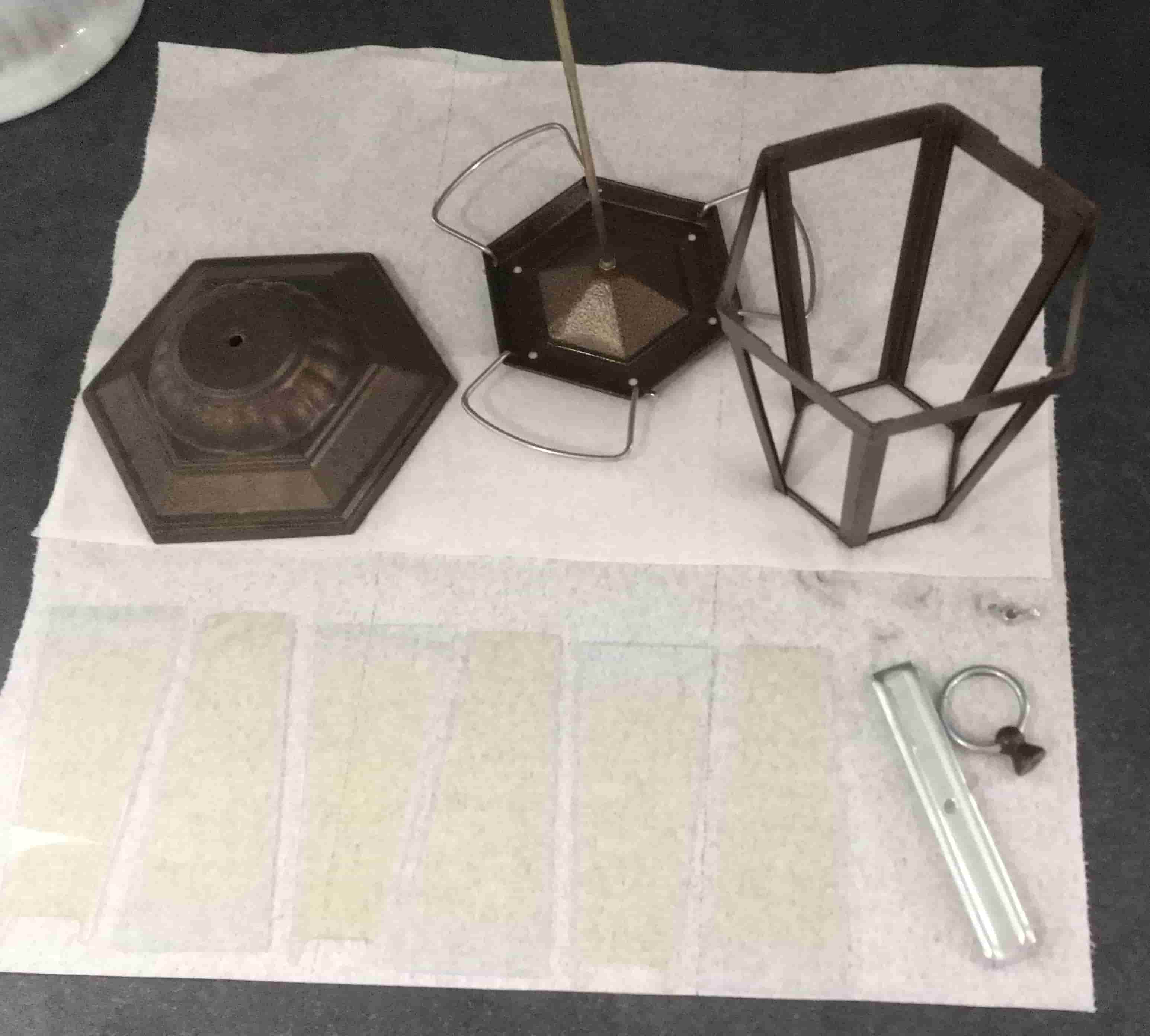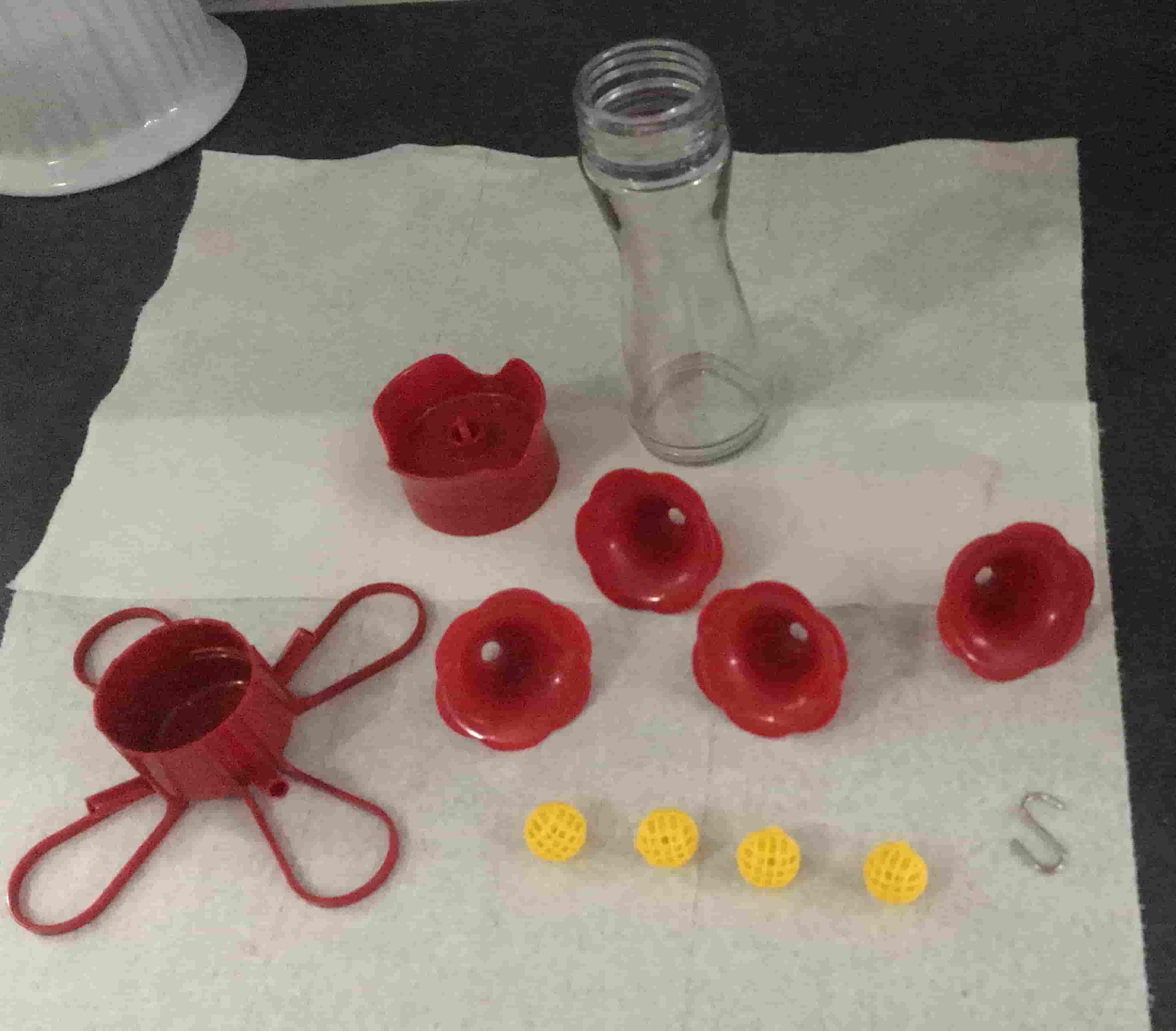Cleaning Bird Feeders
You've got feeders out, and bringing all types of birds into your backyard. But if any of the food happens to spoil, you run the risk of passing disease on to the birds you are enjoying. Which means that cleaning bird feeders is a must. Read on to learn how to keep your feeders clean and safe for all your backyard birds...
Why Clean
All bird food can spoil and become breeding grounds for mold and bacteria. Any birds coming in to feed on spoiled food will be at greater risk of contracting disease. And if you care about your feathered friends, you really must keep feeders clean to prevent the risk of disease. Plus, there is an added perk to keeping them clean. They will last longer and look nicer, enhancing your enjoyment of attracting birds to your backyard.
How Often To Clean
Some foods, like hummingbird nectar or suet, spoil more quickly than others, like seed. For this reason, different types of feeders need to be cleaned more often than others. We highly recommend you establish a regular cleaning schedule, then adjust that to match your weather conditions. If you get more wet or hot weather, you may need to clean more frequently.
For hummingbird feeders - clean at least once a week
For seed and suet feeders - clean every two weeks if possible, but certainly no longer than every four weeks
If you see sick or ill birds in the neighborhood, don't wait to clean your feeders. Do it immediately!
How To Clean
For all feeders, take them apart before cleaning. This allows you to clean in some of the nooks and crannies that otherwise you couldn't get to.
For seed feeders, either wash the parts in the dishwasher or hand wash using hot to boiling water and a cleaning solution. This could be either soap or a bleach solution of no more than 1 part bleach to 9 parts water. Once it's clean, rinse very well to remove any residues of the cleaner. Then dry completely before re-using.
 Hopper feeder disassembled. Note the plastic panels in front.
Hopper feeder disassembled. Note the plastic panels in front.Don't forget to clean under your seed feeders. Birds are messy eaters. Empty hulls and some seed will get dropped and accumulate under the feeders. These can cause several problems. When they get wet, and they will if you don't clean them up, mold can form, making it unhealthy for any birds foraging on the ground and for your outdoors dogs or cats. Plus, dropped seed will attract rodents, like mice and rats.
For hummingbird feeders, hand wash with hot water and use a bottle brush to get the tubing clean. Some manufacturers recommend using a mild detergent, while some experts claim you should never use any detergent. We believe that you can use a mild detergent or bleach solution (1 part bleach to 9 parts water), but you MUST rinse thoroughly to make sure no residues are left.
 Hummingbird feeder disassembled.
Hummingbird feeder disassembled.Summary
So that's it. Keep your feeders clean, on a regular schedule. Yes, it takes more work and time, but knowing you are doing your part to keep your bird guests healthy should be reward enough. Enjoy!